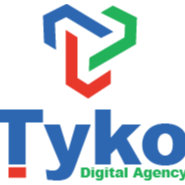
There are 17 Companies in Sri Lanka
that provide Print Design Services!
Sri Lanka is and has been for some years always been considered in the top 50 countries to outsource services, which is also related to the IT industry being one of the most important industries in the country. The history of the industry in Sri Lanka started in 1976 with the creation of the Computer Society of Sri Lanka, but the Business Process Outsourcing (BPO) industry started around the year 2000, and its development has been increasing since then to become one of the top destinations for foreign countries to outsource their services.
Discover Top IT Companies in Sri Lanka specialized in Print Design including Album Cover Art, Business Cards, Banners, Magazine & Book Covers, Invitations, Postcards and more.
Print design is a branch of graphic design in which the design is created digitally before being printed physically. It is largely used for branding and marketing purposes, and it includes products such as business cards, pamphlets, and packaging. This type of design is used for graphics that will be printed on tangible publications.
The increasing consumerism and the necessity for businesses to differentiate themselves are driving up demand for print designers. Furthermore, print ads are more likely to be recalled than digital advertisements, with Forbes reporting that 75% of recipients can recall the message.
Handpicked companies • No obligation to hire • 100% risk-free
Featured Companies in Sri Lanka
This month, the following Print Design companies managed to provide an outstanding service and support. It's worth taking a look.
A fast-growing IT and business solutions company, empowering global businesses with cutting-edge technology and digital innovation.
Akkenum Interactives company that helps businesses in the digital age. We are one of the finest Web Development and Digital Agency Company in Jaffna.
We Match Our Designs With Your Desires
Explore Top Print Design Companies in Sri Lanka
Weblook International offers complete digital solutions, such as web design, SEO, e-commerce, and hosting, to boost your online presence effectively.
Services:
LKProfessionals delivers end-to-end IT services, empowering businesses with innovative, reliable, and scalable digital solutions.
Services:
Pegotec is a top software firm delivering tailored web and mobile solutions.
Metaphor is a full-service marketing agency transforming brands with innovative, data-driven solutions and 15+ years of industry experience.
Services:
Drive more traffic, generate qualified leads, and boost your online visibility with expert strategies and dedicated support.

DeshTech Solutions Verified Company
Pannipitiya, Sri Lanka Head office in: Sri Lanka
Partner with DeshTech for custom web design solutions that align with your brand, offering seamless collaboration, support, and ongoing maintenance.
Services:
Full-house digital marketing & advertising agency provides PR, SEO, Email Marketing, Web Design, Video Production, Branding, OOH and DOOH services.
Maestro Innovative Solution (Pvt) Ltd - Software Development Company providing solutions to all majo
CYBER HUSTLE is all about Empowering your Digital Game. We are a thriving Web design & Digital marketing agency based in Colombo, Sri Lanka.
Services:
Lanka Designer can be well defined as an interactive agency that offers a wide array of customized services in the field of web design and development...
infonits: Transforming visions into digital reality, we specialize in innovative IT solutions and impactful branding to propel your success forward.
Echt Social is a digital marketing agency in Sri Lanka that specialises in SEO, Social Media Marketing, PPC and Graphic Design.
Services:
Creative Design and Web Design Company in Sri Lanka catering to local and international clients.
Ideaweb is a personal Website design and Graphic Design based in Colombo, Sri Lanka.
Services:
Filter Print Design Companies in Sri Lanka by Cities
Find the right tech company near you or from a specific city. Some of the best companies might be located in smaller cities.
Find more Print Design companies around the world
TechBehemoths is the world's most advanced and user-friendly platform to match IT Companies with real clients without hustle.
The IT Industry in Sri Lanka: Companies, Insights & Data
Sri Lanka has consistently been considered one of the top 50 countries for outsourcing services. This status is also related to the country's IT industry being one of its most important sectors. The history of the industry in Sri Lanka started in 1976 with the creation of the Computer Society of Sri Lanka, but the Business Process Outsourcing (BPO) industry started around the year 2000, and its development has been increasing since then to become one of the top destinations for foreign countries to outsource their services.
The country is a development center for many big companies from all over the world, such as J.P. Morgan & Co., Qatar Airways, Microsoft, and Google, and other companies from countries like Japan, Sweden, Norway, North America, Australia, and the UK. It is estimated that the profit of outsourcing services to Sri Lanka can cost 70% of the price it would cost in the same country as the companies.
The next projection of the future for the country is to reach 5 USD billion in exports by 2022 and create 200.000 jobs. Related to this data, the country also achieved a target of 1 USD billion in the year 2016. In the first 7 months of 2025, the total exports are worth $10 billion. The ICT sector reached approximately $1.7 billion, and by 2030, is expected to reach $5 billion.
With the fast growth of the IT industry, the government took action to boost the possibility to be able to learn IT-related technologies in the country and improve IT education in the country. Sri Lanka also ended the Indo-Sri Lankan “Comprehensive Economic Partnership Agreement” because it was causing unemployment for Sri Lankan professionals.
Why Should You Work With Sri Lankan Companies?
Some of the reasons for working with IT companies from Sri Lanka are the low costs of outsourcing the services there, and also the good education of the country’s professionals. It is estimated that the costs can be 30% lower. Also, the minimum wage in Sri Lanka is €89.37, and we will talk in-depth about this in the following section.
The education in the IT sector is rich in knowledge because the IT industry is one of the most important ones in the country. You can find highly educated graduates, and also, there’s one more aspect to talk about, and it is the law.
The law about foreign business and commercial law follows the principles of British commercial law and has an independent judiciary. Sri Lanka has also signed some international treaties about intellectual property rights, electronic transactions, and computer crimes, and it is one of the most rigorous in this region. In addition to this, the country has signed a Free Trade Agreement with Singapore (SLS FTA) that eliminates 80% of all tariff lines through staging periods of up to 15 years, and this has come into force since 1st of May 2018.
Their English level is better in relation to other neighboring regions, especially in the city zones, and they are friendly by nature, which makes doing business so much easier.
What to Know When Working With IT Companies From Sri Lanka?
When thinking about working with IT companies from Sri Lanka, you have to be aware of the geopolitical situation of the country and its past, as well as the current situation of the sector. First of all, when talking about minimum wage in Sri Lanka being $89.37 a month (the equivalent of 27.000 rupees, the official coin of the country), you can think about why there’s only a 30% difference between outsourcing the projects to this country with such a big difference in salaries, and the answer is lies in the difference in purchasing power and payment gap between employees and employers that earn a huge profit from these operations. This means that you can have workers of a certain quality, but not always comparable to more developed countries, with better salaries and work conditions.
Also, you need to be aware of the country past and present history, and this includes a very recent civil war that lasted 26 years (from 1983 to 2009), a sometimes unstable security situation in relation to the terrorist attacks suffered from moderate frequency, the last one was on April 2019 and talking about this last attack, Sri Lanka is also a very conservative and religious country, especially for women (Buddhism is part of life in 70% of the people).
Instability, the wage gap between the richest and the poorest, and common scams, not only for tourists but also for business, are things to be aware of when doing business with IT companies from Sri Lanka.
How Reliable Are IT Companies From Sri Lanka?
To answer this question, we will have a look at some studies and other parameters to be able to measure the reliability of Sri Lankan IT companies. We have to refer to a 2008 study by the University of Moratuwa in Sri Lanka, which we will take with a grain of salt for the few objective references that can be found on this subject, and the source of the information. We will also take into account other aspects in relation to the other questions we answered above.
There’s a case study called “Reliability of effort estimates in offshore software companies in Sri Lanka” that can be found in the Digital Library of the University of Moratuwa. The goal is to find out the reasons affecting the reliability of projects in Sri Lanka's offshore IT organizations and recommendations made as a result of this research study.
This case study concludes that the credibility and reliability of IT companies in this sector are subordinated to subjective beliefs of concrete experiences of prejudice, although, from the data we know, not all unreliability is due to this, as Sri Lanka is a country where common scams are certainly frequent. This can apply to the IT industry, but not with the same magnitude.
To conclude this section, we will say that the reliability of IT companies is certainly compromised by the fear of fraud, but as in every region or country, there are always good companies and bad companies. It is advisable to find companies with proven reliability to avoid fraud, and that work with the international standards of quality.
How Does the IT Industry in Sri Lanka Relate to the Neighboring Regions/Countries?
To start developing this section, we will analyze one important and basic aspect of outsourcing projects to this type of country that is still developing. Internet access could potentially curtail the industry’s growth. Although local telecoms operator Mobitel has developed the implementation of 4.5G LTE technology. The average connection speed is 23.77 Mbps in the country, in relation to other countries: Indonesia (28-30), India (136.53), Malaysia (168.94), and Vietnam (163).
Another aspect that can influence the industry development is the high rental prices in Colombo’s commercial property sector, which is the most populated city in the country, although it is not the capital of Sri Lanka. When outsourcing services, one of the most important things is cost reduction, so this is an important aspect to talk about. This aspect in the neighboring countries is less problematic because their development of the industry is more advanced at this time.
Sri Lanka is surrounded by one of the giants of outsourcing services, which is India, a very powerful country that remains untouchable in position number 39 in accordance with the 2024 Global Innovation Index, where Sri Lanka remains in number 89.
Conclusion
The conclusions of this short analysis on Sri Lanka IT industry are as follows, Sri Lanka is one of the top 20 best Business Process Outsource destinations, and the biggest industry activity is outsourcing services, you have to be aware of the unstable situation and the specific characteristics of this country such as internet connection, reliability of the industry, IT level of education of the graduates in this country and of course prices, for this it is recommended to work with companies that have proven reliability to be sure that any frauds will occur, and take advantages of lower costs of outsourcing services to this country.
What is Print Design and what are its benefits for your projects?
Print design is a branch of graphic design in which the design is created digitally before being printed physically. It is largely used for branding and marketing purposes, and it includes products such as business cards, pamphlets, and packaging. This type of design is used for graphics that will be printed on tangible publications.
The increasing consumerism and the necessity for businesses to differentiate themselves are driving up demand for print designers. Furthermore, print ads are more likely to be recalled than digital advertisements, with Forbes reporting that 75% of recipients can recall the message.
1. Tangibility is essential - Print design creates tangible objects that can be touched and explored, allowing readers to engage with the images or text for days, months, or years, unlike emails that can be deleted.
2. Reliability is Critical - Print design items provide customers with legitimate, credible items without fear of spam or viruses, attracting them without aggressive spam-like behavior.
3. Image Builds Lasting Impressions - Establishing and maintaining a strong brand identity requires consistent visuals, such as fonts, colors, and images, in print design.
4. Reaching the Right Audience - Print design offers niche audience opportunities, reaches a wide market, but modernized marketing techniques must continue.
5. Interaction with the Audience - Consumers spend 30% more time studying printed information than on websites, with seasonal brochures and offer codes fostering good relationships and customer loyalty.
You should know some important features to look for before choosing a print design service provider:
-
Cost
-
Speed of turnaround
-
Response to errors
-
Delivery
-
Quality
There are 2668 Print Design service providers on TechBehemoths, with the help of the criteria listed above and the filters on the platform, you will be able to choose the right service provider for your company.
Moreover, you can submit your project on TechBehemoths, and we will hand-pick a few of the most accurately matching print design companies for you, based on your project description, deadline, budget and technical speciality.















